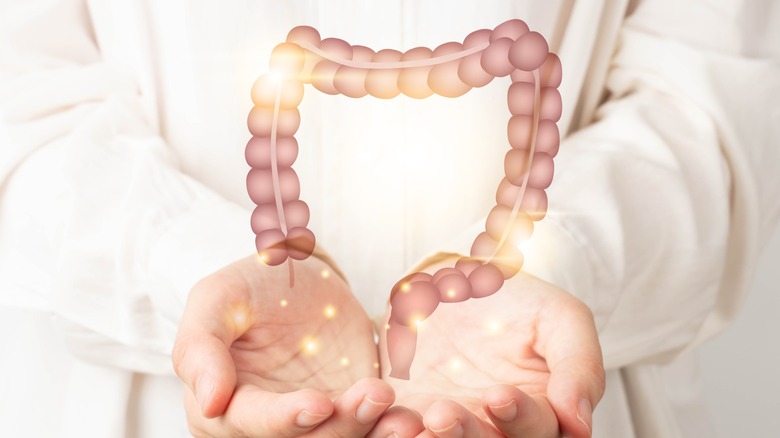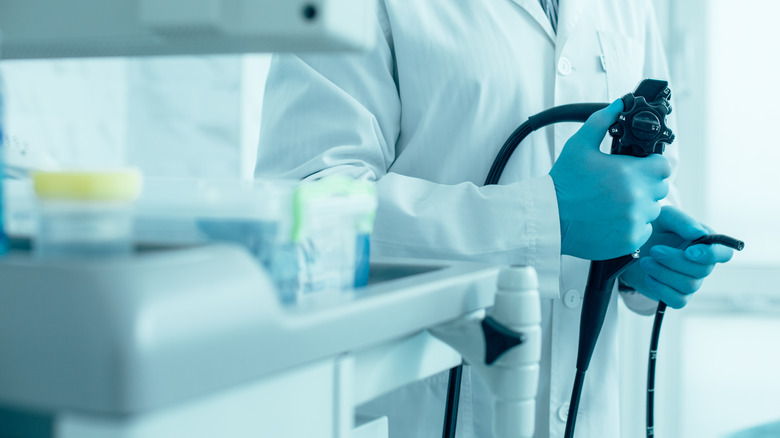Everything You Wanted To Know About Preparing For A Colonoscopy
A colonoscopy is a diagnostic method used for examining the structure and function of the colon (large intestine) and the rectum, explains the Mayo Clinic. Specialists use this method to look for abnormalities, such as swelling, rashes, bleeding, redness, or early signs of cancer. Some doctors may also perform a colonoscopy during treatments, such as surgeries, to remove polyps or abnormal tissues. Another significant use of colonoscopies is for biopsies to obtain a tissue sample and see if there's a risk of colon cancer, per the Mayo Clinic.
According to the Cleveland Clinic, the colonoscopy machine consists of a long tube with a camera at one end that is inserted into the rectum or the colon. This tube is flexible to limit patient discomfort. The Cleveland Clinic further explains that some patients are reluctant to go through this process for fear of an invasion of privacy. However, the procedure is performed by a highly professional team that ensures the process is as smooth as possible for the patient. Per the National Health Service (NHS), you will usually receive the results of the colonoscopy exam in 2-3 weeks.
What should you know before a colonoscopy?
Before your first colonoscopy, you may need to follow some preparations. Per the Cleveland Clinic, patients must communicate with the doctor about their medications before a colonoscopy is scheduled. Inform the doctor about every prescription drug or over-the-counter med you take. The colonoscopy may need to be rescheduled if you're a diabetic or are currently taking blood thinners.
According to the Harvard Medical School, doctors need to ensure your colon is empty before the procedure. This is achieved through highly potent bowel-cleaning fluids or by consuming special diets. It's an integral part of the process, as an empty colon makes the polyps, rashes, and other abnormalities more visible. The National Institute of Diabetes and Digestive and Kidney Diseases (NIDDKD) recommends consuming a clear liquid diet for at least 1 to 3 days before the examination. It also advises avoiding foods that contain purple or red color. You may want to consume white or pale-colored fruit juices, such as apple or green grapes juice, low-fat broths, or coffee/tea without milk. The NIDDKD also recommends drinking lots of water before the colonoscopy.


